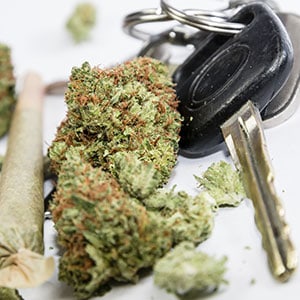
Understanding the elements of a charge of operating under the influence (OUI) in Maine is fairly straightforward in Maine. In most cases, law enforcement obtains a breath or blood sample from a driver and tests the blood alcohol concentration (BAC). If a driver’s BAC is .08 percent or more, the alleged offender could be convicted of OUI.
The law also outlaws operating a vehicle under the influence of drugs. While testing for some drugs has been available for years, technology has thus far not allowed for an accurate marijuana breathalyzer. That may change as soon as 2020. According to University of Pittsburgh researchers, the release of a marijuana breathalyzer could be close at hand.
The Challenge Of A Marijuana Breathalyzer
The issue with detecting intoxication through marijuana isn’t simple. Unlike many other drugs that exit the body in minutes or hours, traces of marijuana can remain for weeks or months. While these tests might give law enforcement an idea of whether a person used marijuana in the last month, current technology is useless in determining if the driver was under the influence of marijuana at the time they were driving.
The tool proposed by University of Pittsburgh researchers’ claims to have solved the puzzle. Their device, they claim, can detect the presence of THC in a driver’s breath. THC is the psychoactive chemical in marijuana that gives it an intoxicating or hallucinatory effect. By identifying THC on a driver’s breath, this device could give law enforcement evidence of intoxication they could use at trial.
Current Methods Of Identifying Marijuana Use
Until this technology is available to law enforcement, Maine officers will continue to use the same methods they have for years. This typically involves the use of drug recognition experts (DRE). Unfortunately, the DRE process has a spotty track record of accuracy. The process is a combination of field sobriety tests and physical examinations. While officers receive specialized training, these tests are largely subjective.
The good news is that marijuana OUI charges are defensible. In many cases, a DRE’s conclusion will not hold up in court. With the guidance of a skilled Maine OUI attorney, you might be able to beat the charges you currently face.
The Penalty For Marijuana Oui
Upon conviction for OUI due to marijuana intoxication, the penalties you might face can vary. For a first offense, you could avoid jail time but will face fines and a license suspension. However, the potential penalties are much steeper if you have prior convictions. A third offense, for example, is a felony charge that could result in up to 30 days in jail and a six-year license suspension.
Contact A Maine Oui Attorney Right Away
If you currently face an OUI marijuana charge, this upcoming technology will have no impact on your case. However, that does not mean you are out of the woods. Law enforcement has been obtaining convictions in these cases for years despite the inability to accurately test for THC. To give yourself the best chance of prevailing in your case, contact the Law Offices of William H. Ashe right away.
William Ashe is an experienced trial attorney with a career track record of determined
effective representation and consistent sustained success on behalf of his clients. He has
been named to the National Trial Lawyers Top 100 Criminal Defense Attorneys every year
since 2014 and has a perfect 10.0 rating by the lawyer rating site Avvo. (207) 813-2935